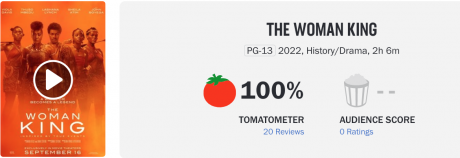A half-hour ago I fell asleep at the local diner (i.e., Orem’s). Sitting up, head resting on my chest. Like Tom Cruise‘s “Vincent” on the L.A. metro car at the end of Collateral. The 50ish, uniformed waitress wasn’t sure due to my darkly tinted, red-framed reading glasses, but she eventually realized I was out like a light. She gently shook my shoulder. “Sir? Sir?” Whunnh? Oh, God…okay, thanks.
“Stop Calling It A Hobby”
Immediate recognition. You can just tell. Piano-playing mom gets it, bespectacled dad not so much. It feels whole. Very few kids are “called” at age seven or eight. Talk about a charmed life.
I was touched by movies at a young age also, but not as a grand creative goal as much as therapy, release, escape. Release from the hell of coping with a scowling alcoholic daad, and from both parents doing what they could to steer me away from movie-worship and toward a life of conventional scholastic achievement and rule-following. No thanks.
29 Storytellers
It took me over four months to finally watch Emma Cooper‘s The The Mystery of Marilyn Monroe: The Unheard Tapes (Netflix). It’s basically a montage of digitally enhanced (and quite beautified) clips of Monroe’s life and times along with an assembly of corresponding audio excerpts from 29 interviews conducted by British author Anthony Summers. And what the doc conveys feels entirely frank and honest and sobering.
Now 79, Summers actually conducted 650 Monroe-related interviews, and they consumed about three years of his life. The ultimate result was Sumnmers’ “Goddess: The Secret Lives of Marilyn Monroe” (’85).
I wanted to absorb Cooper’s excellent doc, which conveys a sense of documented, matter-of-fact, take-it-or-leave-it truth, before seeing Andrew Dominik‘s Blonde (Netflix, 9.23), which is allegedly quite the stacked deck with one odious predator after another. The Summers doc, on the other hand, tells us repeatedly that Monroe had a fair number of friends and allies and considerate acquaintances in her life…people who cared for her or at least tried to care for her, and that her existence wasn’t entirely about being victimized.
I suspect that Blonde will be less balanced and ultimately less forthcoming because of the Joyce Carol Oates narrative, which is that despite having became a flush and famous movie star, poor, brutalized Marilyn never caught an emotional break, and was rarely blessed in the way of good fortune or serendipity or the simple luck of the draw, and that her last two or three years on the planet were especially arduous.
Trailer Tomorrow
Written last March: “Damien Chazelle’s Babylon is crazy and cranked up to 10 or 11 and at times rather extreme and orgiastic and almost Salo-like in one or two respects…it isn’t mad and indulgent and wicked in itself, of course, but it certainly uses a kind of Vincente Minnelli-meets-Fellini Satyricon-type paintbrush. Call it a flamboyant, envelope-pushing, 185-minute version of Singin’ In The Rain with the songs and dancing and smiles taken out. Or a depravity-tinged survival story about Hollywood transitioning from the silent era to sound, although ultimately spanning three decades (mid 1920s through 1952).”
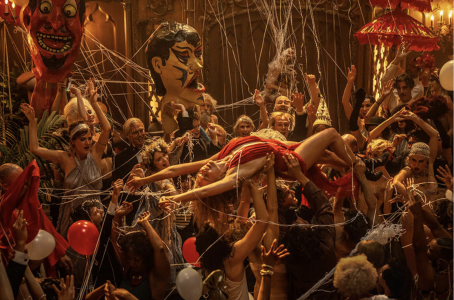
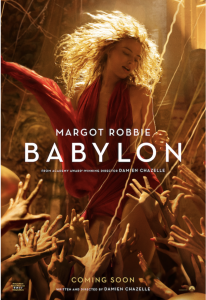

Would Never Be Allowed Today
No feature film director would even suggest such a scene (24-second mark), even during the scriptwriting stage. Nor this one. For this is the New Puritanism. Where is Barry Sonnenfeld now? Perhaps we could…okay, not retroactively cancel him but at least admonish him? Wild Wild West is 23 years old, but (a) right is right and (b) it’s never too late to punish.

So Much For HE’s “Holdovers” Dream
Two days ago Deadline‘s Michael Fleming reported about a special private screening of Alexander Payne‘s The Holdovers. The idea, at least in theory, was that Payne’s Christmas-themed, Paul Giamatti-starring dramedy might open later this year. Fleming: “It’s very possible that one of the usual suspects will step up and put this film [into] the awards season race late in the year.”
Not so fast, Mike! You were right about last weekend’s private screening, but Focus features has bought the distribution rights, and they’ve boldly decided to open it during Christmas 2023.
It would seem, in short, that Focus has decided that it’ll be too strenuous to open The Holdovers 14 or 15 weeks hence, and it’ll be somewhat easier (and perhaps less costly) to open it 16 months down the road. Probably because (I’m just guessing here) they’ve decided it’s too subtle and modestly adult and character-driven in a low-key way to compete as a year-end, award-calibre attraction quite so soon. Or something like that.


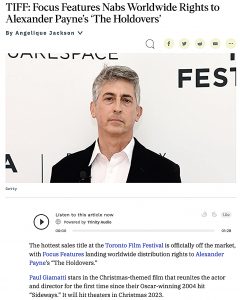
I’ve Never Met Hillary Clinton
…but I know who she is. I know her history, beliefs, influences, and to a large extent her personality. She was a Barry Goldwater girl in ’64 so don’t tell me. So there’s absolutely no ambiguity here — Hillary is not a Cardi B. WAP girl, and I don’t believer Chelsea is either. Not really. I think they’re pretending to relate to the WAP thing in order to not seem stuffy or congested or wealthy-white-woman elitist types. I don’t believe a word of this.
The two-year-old Cardi B. meets Megan Thee Stallion WAP video is all about unabashed, non-apologetic sexual arousal in its wettest form. WAP stands for wet-ass pussy. Any semi-mature woman or man who watches this video is going to have…uhm, certain reservations. I’m presuming that a sizable percentage of semi-mature women (or men) who’ve watched this have probably said to themselves “if I think this is sorta kinda shamelessly vulgar, does that make me a bad person? Maybe I should sorta kinda keep this to myself.” I’m presuming, in fact, that outside of your 20something hot-to-trot hormonals, people of all stripes and ages have had this reaction.
Hillary is a flesh-and-blood human with feelings and memories of her youth and all the rest, but she’s not a WAP woman, and she never will be.
Dying of cringe…..Even Megan Thee Stallion looks deeply uncomfortable lmao 😵💫 pic.twitter.com/rKy4io9vY8
— The Vanguard (@vanguard_pod) September 11, 2022
Imminent “Amsterdam” Showing at Alice Tully Hall
The first industry showing of David O. Russell‘s Amsterdam (20th Century, 10.7) happened this evening at Ross House, the swanky Mt. Olympus screening facility. A mesmerizing and amusing you-tell-me (I wasn’t there)…an all-star 1930s mystery shuffle, nervy and comedic and an attitude “ride” in every conceivable sense….a hyper hellzapoppin’ involving several plot threads and many characters.
Christian Bale, Margot Robbie, John David Washington, Chris Rock, Anya Taylor-Joy, Zoe Saldaña, Mike Myers, Michael Shannon, Timothy Olyphant, Andrea Riseborough, Taylor Swift, Matthias Schoenaerts, Alessandro Nivola, Rami Malek and Robert De Niro.
The post-screening discussion was between Russell, Bale and director Adam McKay.
Producer Matthew Budman announced that Amsterdam will have a big screening “next week” (presumably between 9.19 and 9.9.23) at Manhattan’s Alice Tully Hall.



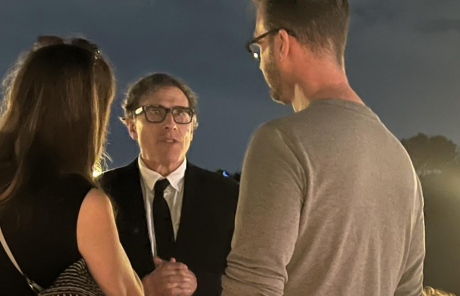

Spirit Soars At Mere Possibility
HE knows nothing solid about a possible coup against Vladimir Putin. Apparently there is nothing solid. But oh, so tantalizing! The notion of a coup being increasingly likely has been strengthened by a social media flurry over the last 24 hours. Russian losses in Ukraine (especially in the Kharkiv region) are adding fuel to the fire. Powerful people in Russia want the Ukraine war ended and Putin out on his ass. If Putin goes down, my recommendation is to shoot him like the Bolsheviks shot the Czar’s family. Stand him against a wall like Ceaucescu…ready, aim, fire. Problem solved.

Something is going on in Russia👇 https://t.co/RkbhdpY7mJ
— Big Louie VOTES BLUE! (@hsobejon) September 11, 2022


Broken Champagne Glass
Please pay particular attention to the last two paragraphs of this piece, which was originally posted on 3.5.18, or three and a half years ago:
Yesterday I watched Fox Home Video’s Bluray of Joseph L. Mankiewicz‘s A Letter To Three Wives (’49), which I first saw…oh, sometime in my teens. Even in that early stage of aesthetic development I remember admiring the brilliant writing and especially the way it pays off.
Nominally it’s what used to be called a “woman’s drama“. A three-character piece, it’s about whose husband (Jeanne Crain‘s, Linda Darnell‘s or Ann Sothern‘s) has run away with sophisticated socialite Addie Ross, who narrates the film from time to time (the voice belongs to Celeste Holm) but is never seen. But that’s just the story or the clothesline upon which Wives hangs its real agenda. For this is primarily an examination of social mores, values and ethics among middle-class marrieds of late 1940s America.
Over and over the film reminds you how long ago this was. Southern is fairly liberated in the sense that she’s the main breadwinner in her household; her husband, played by Kirk Douglas, is a more-or-less penniless schoolteacher. One of the film’s quaint highlights is Douglas’s cocktail party rant against the dishonest and vulgar hucksterism of commercial radio. This was a valid point, I’m sure, from Mankiewicz’s perspective 60-plus years ago, but if Joe could see the world now…
But I’d really forgotten how effective the ending is. It’s partly the surprise admission from Paul Douglas (as Darnell’s wealthy, somewhat crude businessman husband) that it was he and not Craine’s husband Brad (written by Mankiewicz as a bland and patronizing type, and certainly played that way by Jeffrey Lynn) who ran off with Addie. But what really got me is the final bit when Douglas and Darnell hit the dance floor and the camera drops down to the table and suddenly Addie is a spirit of some kind — a spectral force.
All through the film Addie has been the absent “other” and suddenly she’s a spook who tips over a champagne glass and breaks it. A metaphor for disappointment and defeat, sure, but I find it fascinating that Mankiewicz would shoot Wives as a thoroughly dialogue-driven, medium-interior, right-down-the-middle relationship drama and then, at the very last second, change the rules and turn it into Topper or The Ghost and Mrs. Muir. That’s a surprise ending in spades.
He Walks Alone
I won’t be seeing Gina Prince-Bythewood‘s The Woman King (Sony 9.16) until Tuesday evening. The Toronto Film Festival response has been overwhelmingly positive — a very well contructed, highly engaging action drama, they’re all saying. 100% and 75% scores from Rotten Tomatoes and Metacritic, respectively.
Given the overwhelming tide of positivity, HE salutes World of Reel‘s Jordan Ruimy for having the temerity to swim against the tide. I’ve no opinion if Ruimy’s view is correct or incorrect (ask me late Tuesday night), but his review also points out the historical record about the Kingdom of Dahomey.
The Woman King “tells the story of the Agojie, an all-female troop of warriors who fought for the west African Dahomey kingdom for centuries, violently and effectively taking on men who threatened and underestimated them.” — Benjamin Lee’s Guardian review.
Dahomey Wikipage excerpt: “The Kingdom of Dahomey was an important regional power that had an organized domestic economy built on conquest and slave labor, significant international trade and diplomatic relations with Europeans, a centralized administration, taxation systems, and an organized military. Notable in the kingdom were significant artwork, an all-female military unit called the Dahomey Amazons by European observers, and the elaborate religious practices of Vodun.
“The growth of Dahomey coincided with the growth of the Atlantic slave trade, and it became known to Europeans as a major supplier of slaves. As a highly militaristic kingdom constantly organised for warfare, it captured children, women, and men during wars and raids against neighboring societies, and sold them into the Atlantic slave trade in exchange for European goods such as rifles, gunpowder, fabrics, cowrie shells, tobacco, pipes, and alcohol.”
From Peter Debruge‘s Variety review: “Dana Stevens’ stirring script strategically downplays the Dahomey’s own practice of capturing and enslaving others, which surely would have complicated the more admirable dimensions of this historical — and history-making — drama.”
